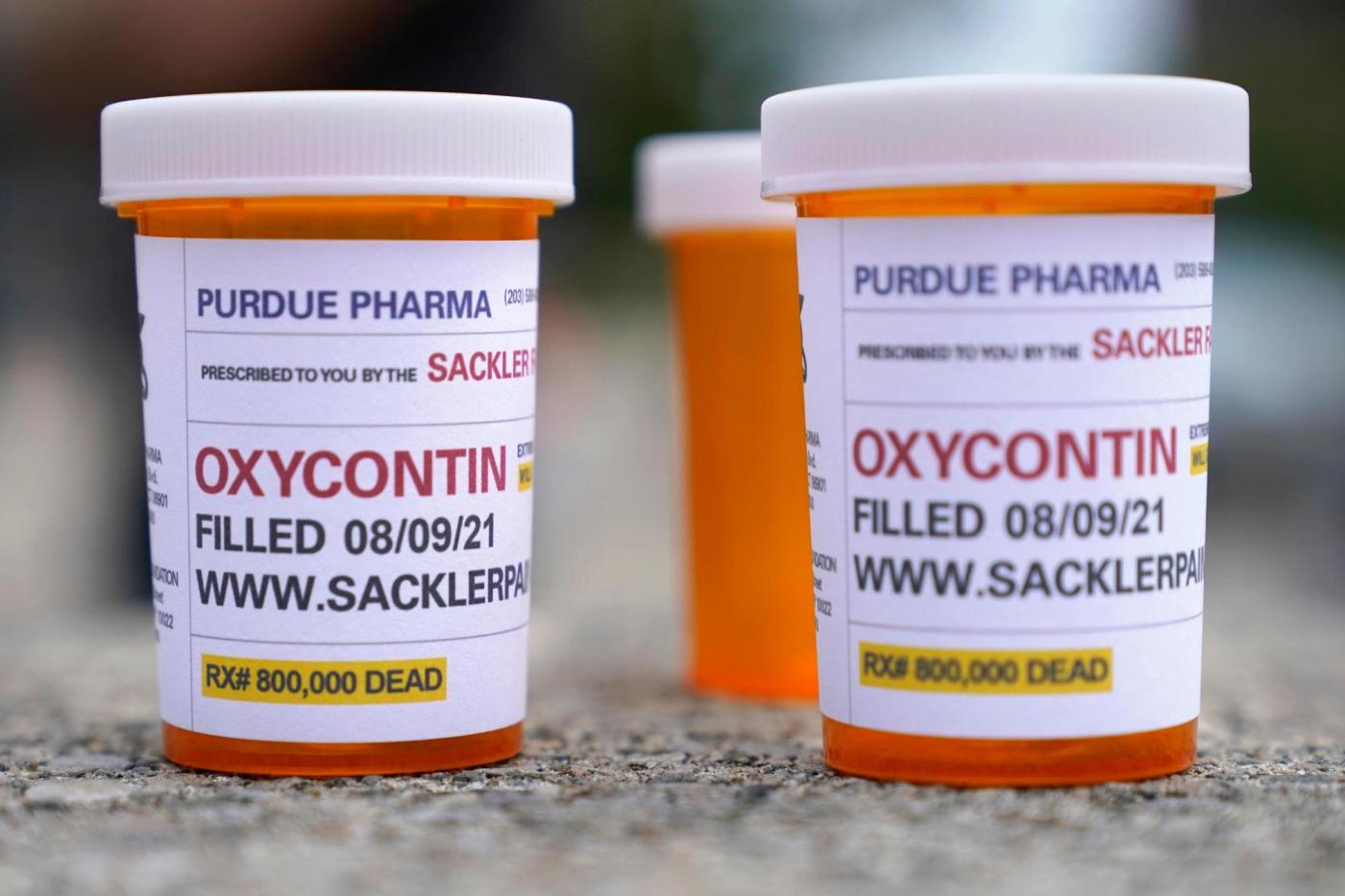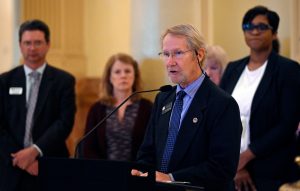Denver has $4.7 million to spend on opioid-related issues, its first share of a national settlement. Now city leaders just have to decide what to do with it.
There are plenty of options: The city’s Department of Public Health and Environment released a list of 58 possible uses Thursday, covering everything from education for first responders and the public to more naloxone, scholarships to recruit more counselors and supportive housing for people with substance-use disorders. The city could spend more money on harm-reduction programs, on syringe distribution, or on culturally appropriate interviewing techniques for providers.
Bob McDonald, the executive director of the city’s Department of Public Health and Environment, said that providers, nonprofits and agencies like his will be able to request shares of the money for one of the 58 approved purposes. The money will be held by the city’s Finance Department and its disbursement controlled by a local council. Broadly, the city’s plan sets aside $1.5 million for prevention, nearly $1.9 million for treatment, and $1.2 million for “additional areas,” like services aimed at children, first responders and research.
“We tried to, by design, to list as many of those categories where we were going to be working because it is going to take a multi-pronged approach,” McDonald said. “The nice thing about the way this is set up is that we don’t have to have all of the answers right now.”
The money is Denver’s first chunk of the roughly $400 million Colorado will receive over the next 18 years as part of national settlements with opioid manufacturers and Johnson & Johnson. The city’s plan was reviewed and cleared by the statewide opioid abatement council, led by Attorney General Phil Weiser, on Thursday, alongside other plans from across the state. In all, the plans represent more than $18 million in initial settlement spending, according to a press release from Weiser’s office.
Denver is set to receive more than $40 million over the life of the settlement terms, according to the state’s data dashboard. Because its list of options has been cleared by state authorities, the city can begin receiving its first allotment of the money soon and distributing it to approved organizations shortly after, McDonald said.
The settlement money is, in some ways, a reminder of how far the overdose crisis has shifted in a decade: The lawsuits to secure the money were filed against opioid manufacturers and distributors as prescription drug abuse fueled overdose deaths. But in the years since those lawsuits were filed and initially settled, fentanyl has become a dominant player in the illicit drug scene. A more potent and deadly opioid than its prescription cousins, fentanyl has rocketed overdose deaths in Denver and Colorado to new highs in recent years.
While other regions’ plans had exact prescriptions for how they will spend their first two years of money — Larimer County will spend $450,000 on care coordinators and $350,000 on school-based programs, for instance — Denver will take its approved list of options to the public and decide which of those 58 options should get funded.
“We put together this large, pretty broad, expansive plan with uses for these funds,” Marion Rorke, a senior substance use analyst with the city’s health department, said. “Now we’ll work with our community, particularly those impacted by opioids, to determine how we best utilize these funds.”
The city’s list of possible uses for the money is “wildly comprehensive,” said Terri Hurst, a policy coordinator with the Colorado Criminal Justice Reform Coalition. Taken together, it represents “what the ideal system would look like.” But $4.7 million doesn’t go very far, she continued, and the city will have to find a way to prioritize and ensure it’s using its funding as efficiently as possible (McDonald noted that the funding isn’t the only money available to the city to address substance use).
Some of the items on the list are already funded, Hurst said, or are already happening. Denver has long offered medication-assisted treatment in its jails, for instance, and it also offered free naloxone to residents for a year. The legislature also set aside another $19.7 million for naloxone earlier this year.
But other options are unique and expansive, and they get at the heart of the city and state’s struggles with substance use. They include scholarships for addiction counselors and compensation for frontline staff; specialized treatment for pregnant women; help for treatment of parents who use drugs; and expanding telehealth use of treatment to improve access.
Rorke and JK Costello, a consultant who helped other regions draft their own plans, noted the list has options to address the “social determinants” of health and substance use, like costs for health care services and housing.
“If we want to improve, we really need to look at making sure that people have homes, have their health, have purpose and have community,” Rorke said.
The money isn’t enough on its own to build infrastructure, like a new building. But Rorke said Denver could team up with other regions or the state and pool money to build an inpatient treatment facility for adolescents, who have been dying at increasing rates amid the emergence of fentanyl in recent years, state data shows. Colorado does not have a single inpatient treatment facility for kids, Rorke said.
The list also includes the option to provide funding to support the establishment of a safe-use site — a place where drug users can take substances under supervision. Such sites have been established in New York and are set to be launched in Rhode Island, and the Denver City Council approved the opening of one here in 2018. But that approval was contingent upon a statewide law change, which has not come.
McDonald noted that safe-use sites couldn’t be opened under either state or federal law, and he said he didn’t anticipate any organization requesting money to open one in Denver.
Join the Conversation
We invite you to use our commenting platform to engage in insightful conversations about issues in our community. We reserve the right at all times to remove any information or materials that are unlawful, threatening, abusive, libelous, defamatory, obscene, vulgar, pornographic, profane, indecent or otherwise objectionable to us, and to disclose any information necessary to satisfy the law, regulation, or government request. We might permanently block any user who abuses these conditions. As of June 15, 2022, comments on DenverPost.com are powered by Viafoura, and you may need to log in again to begin commenting. Read more about our new commenting system here. If you need help or are having issues with your commenting account, please email us at memberservices@denverpost.com.






